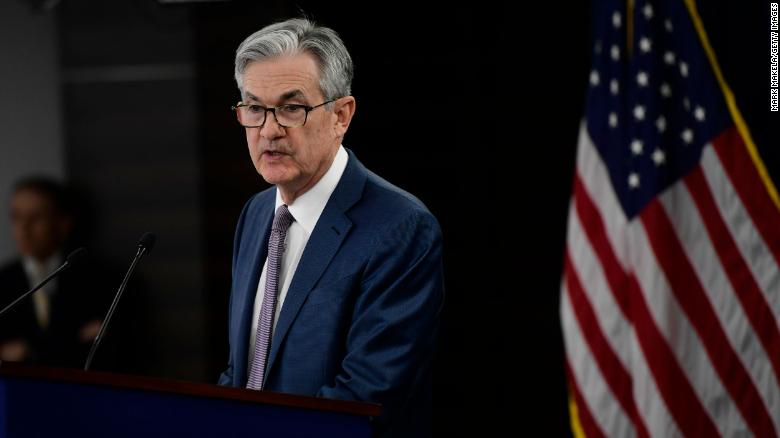Federal Reserve cuts rates to zero to support the economy during the coronavirus pandemic
March 15, 2020
Federal Reserve cuts rates to zero to support the economy during the coronavirus pandemic
By David Goldman, CNN Business
Updated 9:03 PM ET, Sun March 15, 2020

New York (CNN Business)In a bold, emergency action to support the economy during the coronavirus pandemic, the Federal Reserve on Sunday announced it would cut its target interest rate near zero.
The swifter-than-expected rate cut is designed to prevent the kind of credit crunch and financial market disruptions that occurred the last time the Fed had to cut rates all the way to the bottom, during the global financial crisis just over a decade ago.
The Fed's board of governors had been set to meet this week and report on the results of its meeting on Wednesday. Central bankers were widely expected to cut rates to zero at that meeting, after they slashed rates to a half a percentage point in another emergency cut on March 3. Sunday's latest emergency action suggests the Fed believed the cogs of the US economic machine were getting gummed up, and it was concerned that waiting even three more days could be too late to prop up the economy. The Fed will no longer meet later this week.
"I don't think they would have done this unless they felt the financial markets were at significant risk of freezing up tomorrow," said Mark Zandi, chief economist at Moody's Analytics. "They're very concerned the financial markets won't work."
The US stock market tumbled into a bear market this past week -- the first in 11 years -- as investors grew concerned the global economy could stumble into a steep recession as people quarantine themselves at home and the daily motions of normal life around the world come to a screeching halt. Stock futures plummeted again Sunday night.
Federal Reserve Chairman Jerome Powell said in a press conference that those measures will have "significant effect on economic activity in near term" and will restrain economic activity in foreign economies. He said he expects the US economy will suffer as a result next quarter, although he declined to predict a recession or the future of the economy. He said much of that depends on how widely the disease spreads.
Coordinated action
That why the Fed took multifaceted actions Sunday, backing up its other recent initiatives to shore up the economy and the financial markets.
"The world is facing a pandemic situation and for this extraordinary time, we need extraordinary measures," said Nadeem Aslam, chief market analyst at Avatrade. "The Fed cutting the interest rate to zero and restarting the quantitive easing package is the biggest nuclear bazooka."
In addition to rate cuts, the Fed also said it would purchase another $700 billion worth of Treasury bonds and mortgage-backed securities. It also struck a deal with five other foreign central banks, the Bank of Canada, the Bank of England, the Bank of Japan, the European Central Bank and the Swiss National Bank, to lower their rates on currency swaps to keep the financial markets functioning normally.
The Fed last lowered currency swaps during the European debt crisis in 2011. The move makes borrowing US dollars cheaper for banks around the world. Swapping currencies, particularly dollars, is a staple of global financial transactions. The global currency market has been short on dollars, a safe-haven currency that investors and countries buy in times of crisis.
The coordinated move will lower the cost of short-term borrowing for banks around the globe, and it could also keep the global economy clear of an all-out credit crunch similar to the one the world's economies encountered a decade ago.
The bond and mortgage security purchases are tools the Fed previously used during the most recent recession. They helped to shore up housing and US government debt -- two crucial markets that keep the gears of the American financial system turning.


